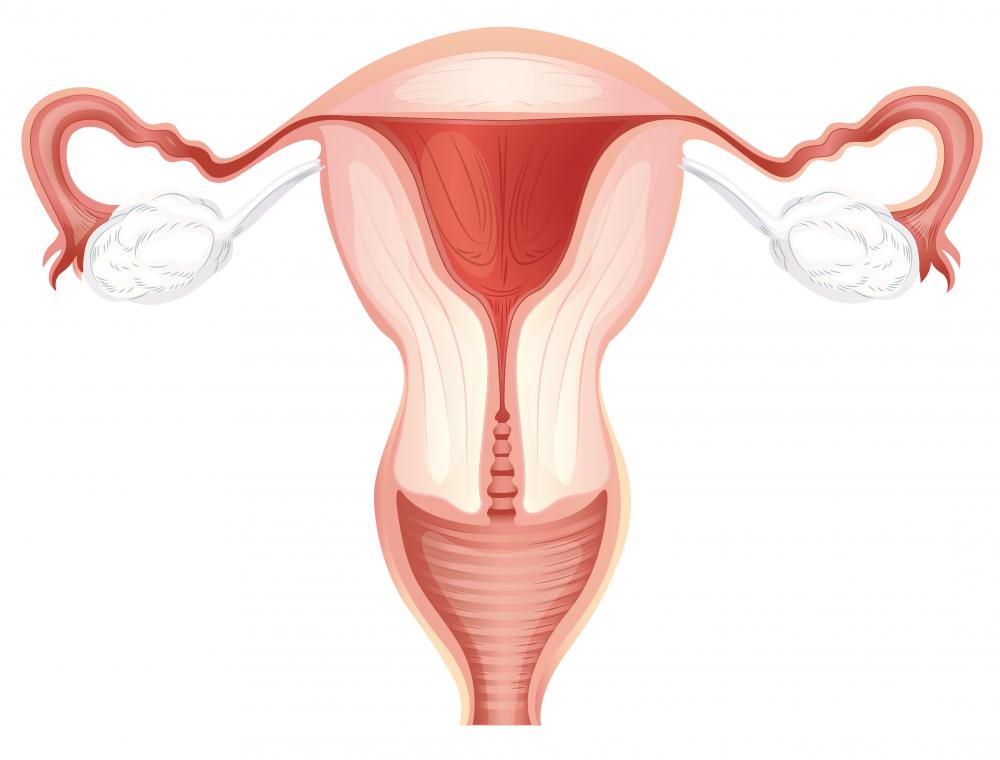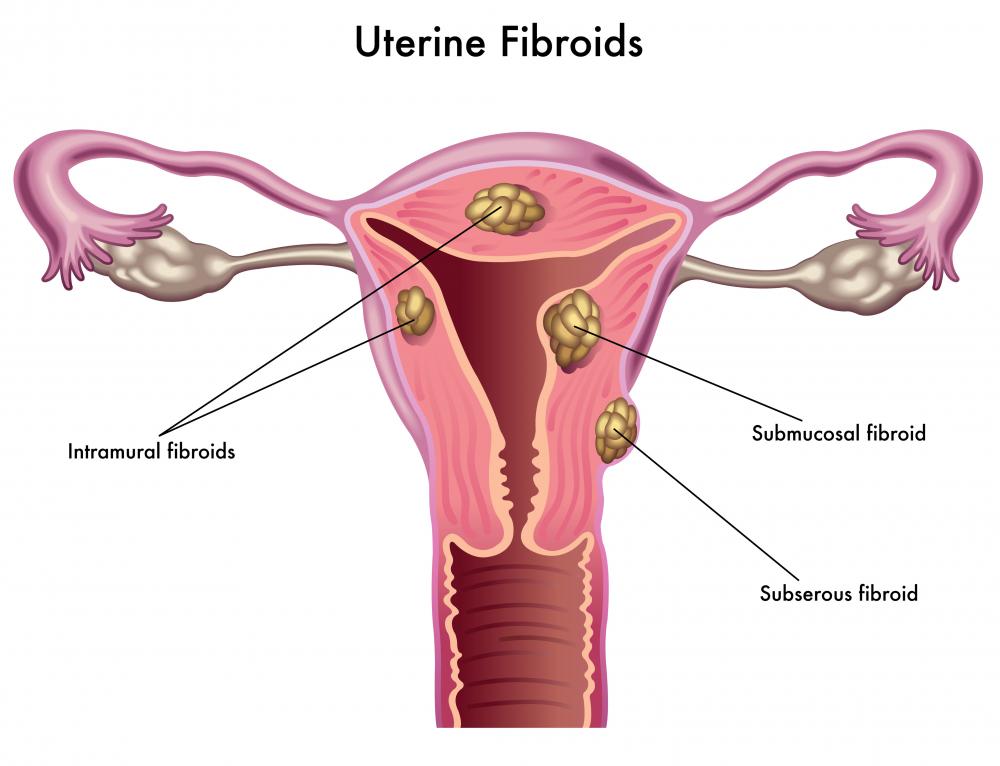At WiseGEEK, we're committed to delivering accurate, trustworthy information. Our expert-authored content is rigorously fact-checked and sourced from credible authorities. Discover how we uphold the highest standards in providing you with reliable knowledge.
What are the Symptoms of Endometrial Cancer?
Symptoms of endometrial cancer include prolonged menstrual bleeding or bleeding in between periods, bleeding that occurs after menopause, abnormal vaginal discharge that is non-bloody, and unintended weight loss. In addition, pelvic pain, fatigue, and weakness can also be symptoms of endometrial cancer. Also known as uterine cancer, endometrial cancer has a better cure rate when diagnosed early. It is extremely important to report any abnormal bleeding episodes or discharge to the physician, so that a medical evaluation can begin.
Typically, symptoms of endometrial cancer mimic other, less serious gynecological conditions such as uterine fibroids or polyps, vaginal infection, or hormonal imbalances. In addition, although endometrial cancer is a disease that generally occurs after menopause, it can occur at any age. Certain risk factors can predispose a woman to developing endometrial cancer, including irregular ovulation, never being pregnant, early start to menstruation, and obesity. In addition, estrogen replacement therapy, diabetes, and a diet high in fat can also increase the risk.

Sometimes, women who have a history of ovarian or breast cancer can be at an increased risk for endometrial cancer, as can women who have taken the medication tamoxifen. It is important for women to know that taking tamoxifen and receiving hormone replacement therapy can also produce symptoms of endometrial cancer such as irregular or heavy bleeding. Women, however, should not assume that their symptoms are related to medications or hormones, and need to see a doctor to determine the cause of the symptoms.

Generally, when symptoms of endometrial cancer occur, the doctor might recommend medical testing such as a transvaginal ultrasound, which can demonstrate the thickness of the endometrium. This procedure can also determine whether symptoms are related to other, less serious conditions. If the physician needs to get a cellular sample of endometrial tissue, he will recommend an endometrial biopsy, which can determine whether malignant cells are present in the uterus. This test can be slightly uncomfortable and produce post-procedure bleeding.

Treatment for endometrial or uterine cancer might include radiation, chemotherapy, or hormonal therapy, which can discourage the cancerous cells from spreading. In addition, a hysterectomy is sometimes indicated to remove the uterus, and the surgeon might also want to remove other structures such as the ovaries, fallopian tubes, and cervix. Surgery is generally the most effective method to ensure that the malignancy has been totally eradicated. This procedure, however, will prevent a woman from becoming pregnant in the future.
AS FEATURED ON:
AS FEATURED ON:

















Discuss this Article
Post your comments